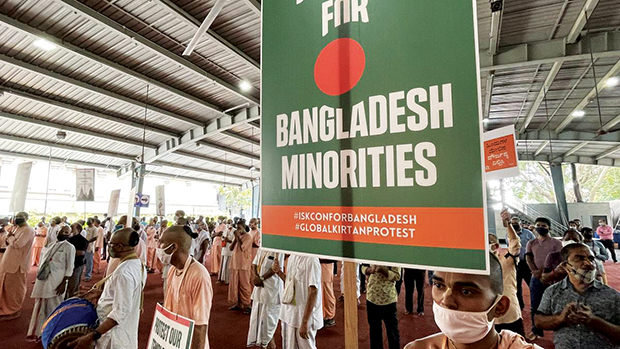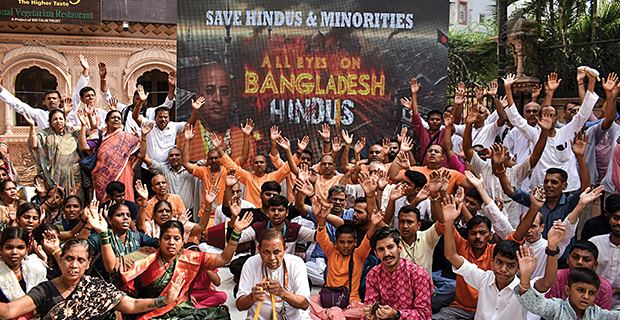Tragically, Hindus Unsafe

The situation in Bangladesh bears an unsettling resemblance to Pakistan’s historical trajectory. Born out of fake promises of secularism, Pakistan succumbed to religious radicalization, particularly during the Zia-ul-Haq era, when political Islam became a tool for consolidating power. The systematic marginalization of minorities in Pakistan, from the persecution of Ahmadis to the abductions and forced conversions of Hindu and Christian girls, has eroded its social fabric and turned the country into a cautionary tale of religious intolerance. Bangladesh, once a beacon of secularism post-1971, is now teetering on a similar precipice.
The parallels are striking. The rise of groups like Hefazat-e-Islam in Bangladesh mirrors the ascendancy of Islamist movements in Pakistan. These groups have gained significant influence over the years, pressuring the government to adopt policies that cater to their radical agendas. The recent murder of Saiful Islam Alif, a lawyer in Chattogram, during violent clashes related to the prosecution of Chinmoy Krishna Das Brahmachari, a former ISKCON priest, exemplifies the growing climate of impunity for extremists. The violent demonstrations, property damage, and injuries to lawyers during this incident signal a worrying trend of mob justice, where radical groups dictate the terms of public discourse through violence.
This growing instability poses a severe threat to regional stability. India, which shares deep cultural and historical ties with Bangladesh, has expressed concern over the rising violence against minorities. Such incidents strain bilateral relations and have the potential to escalate into broader regional tensions. India’s involvement is not merely a matter of proximity; it reflects a genuine apprehension about the erosion of Bangladesh’s secular ethos and the implications for South Asia’s geopolitical dynamics.
The implications of Bangladesh’s crisis extend beyond its borders. A destabilized Bangladesh could become a fertile ground for transnational extremist networks, further complicating South Asia’s already fragile security landscape. The Rohingya refugee crisis, which has placed immense strain on Bangladesh’s resources, could exacerbate tensions as extremist groups exploit vulnerable populations for recruitment. Additionally, the spillover effects of radicalization could embolden similar factions in neighboring countries, undermining efforts to promote pluralism and tolerance across the region.
The failure of Bangladesh’s interim government to address this crisis reflects a broader pattern of state complicity or indifference in South Asia. Pakistan’s trajectory offers a stark warning. The state’s early accommodation of Islamist factions eventually spiraled into a full-blown crisis, where these groups not only dictated domestic policies but also influenced foreign relations. Bangladesh risks following this path, where short-term political gains outweigh the long-term costs of religious radicalization.
The role of external forces cannot be ignored. Both Pakistan and Bangladesh have experienced the influence of transnational Islamist ideologies, often funded and supported by actors in the Middle East. The export of Wahhabi and Salafi ideologies has undermined the region’s syncretic traditions, replacing them with rigid interpretations of Islam that leave little room for diversity. In Bangladesh, this influence is evident in the attacks on Sufi shrines, which have historically been bastions of inclusive spiritual practices.











Comments.